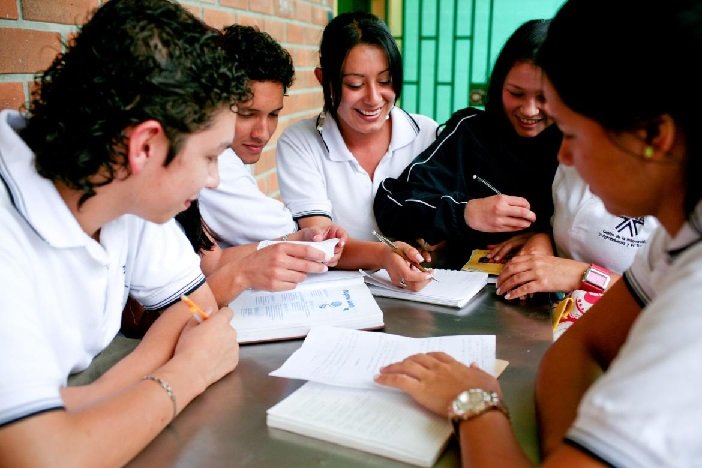
Introduction to Comprehensive Sex Education
Welcome to our blog, where we dive deep into topics that matter! Today, we’re exploring the world of sex education and why it is more important now than ever before. Whether you’re a parent, a student, or simply someone interested in the well-being of today’s society, this article will shed light on the significance of comprehensive sex education.
Sex education is not just about talking birds and bees or awkward classroom discussions; it goes far beyond that. It encompasses a holistic approach to educating young people about their bodies, relationships, consent, reproductive health, and so much more. So let’s delve into the current state of sex education in schools and uncover why comprehensive sex education holds immense value for everyone involved.
The Current State of Sex Education in Schools
Sex education has long been a controversial topic, and its implementation in schools varies greatly. In some countries, comprehensive sex education is mandated by law, while in others it is left to the discretion of individual schools or teachers. This patchwork approach means that many students are not receiving the information they need to make informed decisions about their sexual health.
One issue with the current state of sex education is that it often focuses solely on abstinence-only programs. These programs have been shown to be ineffective at preventing teen pregnancies and reducing rates of sexually transmitted infections. By failing to provide accurate information about contraception and safe sex practices, these programs leave young people ill-equipped to navigate their own sexual experiences.
Another concern is that LGBTQ+ issues are often ignored or stigmatized in traditional sex education curriculums. Many students who identify as LGBTQ+ report feeling excluded and misunderstood when discussions about sexuality only cater to heterosexual relationships. It’s crucial for inclusive sex education programs to address the unique needs and experiences of all students, regardless of their sexual orientation or gender identity.
Furthermore, the lack of comprehensive sex education can contribute to harmful myths and misconceptions surrounding topics such as consent, healthy relationships, and body image. Without proper guidance from trusted educators, young people may turn to unreliable sources like peers or media for information – leading them down potentially dangerous paths.
In order for our society’s youth to have access to accurate and relevant information about sex and sexuality, we must advocate for comprehensive sex education in schools. This means providing age-appropriate lessons that cover a wide range of topics including anatomy, reproductive health, contraception methods (including condoms), consent, communication skills within relationships (both romantic and platonic), STI prevention strategies – including HIV/AIDS awareness -, understanding sexual orientation diversity (LGBTQ+ inclusive) alongside promoting respect for oneself and others’ boundaries.
By equipping young people with knowledge about their bodies, relationships, and personal boundaries, comprehensive sex education empowers them to make
Arguments for and Against Comprehensive Sex Education
When it comes to comprehensive sex education, there are strong arguments both in favor of and against its implementation. Supporters believe that providing thorough and accurate information about sexual health is essential for young people to make informed decisions. They argue that by teaching topics such as consent, contraception, STD prevention, and healthy relationships, comprehensive sex education equips students with the knowledge they need to navigate their own sexual experiences responsibly.
Additionally, proponents of comprehensive sex education argue that ignoring or avoiding these topics does not protect young people from engaging in risky behaviors; instead, it leaves them vulnerable to misinformation from unreliable sources like peers or the internet. By addressing these subjects openly and honestly in schools, educators can help dispel myths and misconceptions surrounding sexuality.
On the other hand, opponents of comprehensive sex education often cite moral or religious concerns as reasons why they oppose its inclusion in school curricula. They believe that discussing topics related to sexuality promotes promiscuity or goes against their values. Some argue that abstinence-only programs are a more appropriate approach.
However, research has consistently shown that abstinence-only programs are ineffective at preventing teenage pregnancy or reducing rates of sexually transmitted infections (STIs). Comprehensive sex education acknowledges the reality that some teenagers will engage in sexual activity but focuses on promoting responsible behavior rather than simply discouraging all forms of sexual activity.
The debate over whether to implement comprehensive sex education centers around differing views on what constitutes appropriate information for young people. While opponents may prioritize personal beliefs or cultural norms when advocating for limited discussion of sexual health matters in schools, supporters emphasize evidence-based approaches aimed at empowering students with vital knowledge about their bodies and relationships.
It is important to recognize that implementing comprehensive sex education does not mean undermining parental authority; rather it complements parents’ role by providing accurate information within an educational setting. When schools work together with parents to provide a holistic approach towards educating young people about sexual health, it ultimately contributes to a society where individuals are equipped with the knowledge and tools
Benefits of Comprehensive Sex Education

Comprehensive sex education has numerous benefits that can greatly impact individuals and society as a whole. By providing comprehensive information about sexual health, relationships, consent, and contraception, students are equipped with the knowledge and skills to make informed decisions.
One of the key advantages of comprehensive sex education is its potential to reduce rates of unwanted pregnancies and sexually transmitted infections (STIs). By teaching young people about safe sex practices and making them aware of different contraceptive methods available, they are better able to protect themselves against unplanned pregnancies and STIs.
Moreover, comprehensive sex education promotes healthy attitudes towards sexuality by breaking down stigmas surrounding topics like masturbation or LGBTQ+ issues. This inclusive approach helps create an environment where students feel comfortable discussing their questions or concerns without judgment.
Another benefit is that comprehensive sex education empowers young people to establish respectful relationships based on open communication and consent. They learn how to recognize signs of unhealthy dynamics such as coercion or abuse while fostering empathy and mutual respect in their interactions.
Additionally, comprehensive sex education equips students with valuable life skills beyond sexual health. It teaches critical thinking, decision-making skills, assertiveness training – all essential for navigating romantic relationships, career choices, personal boundaries throughout their lives.
By offering accurate information in a supportive setting at school rather than relying solely on unreliable sources like peers or the internet – which may disseminate misinformation – students gain access to reliable resources from qualified professionals in a controlled environment. This helps ensure they receive accurate information that aligns with public health guidelines.
In conclusion
Comprehensive sex education offers numerous benefits for individuals as well as society at large. By providing accurate information about sexual health, promoting healthy attitudes towards sexuality, empowering young people in building respectful relationships founded on consent – it equips them with crucial life skills necessary for navigating adulthood successfully. The implementation of this type of curriculum should be prioritized across educational institutions globally so we can foster healthier communities where everyone has access not only protected but also pleasurable sexual experiences.






